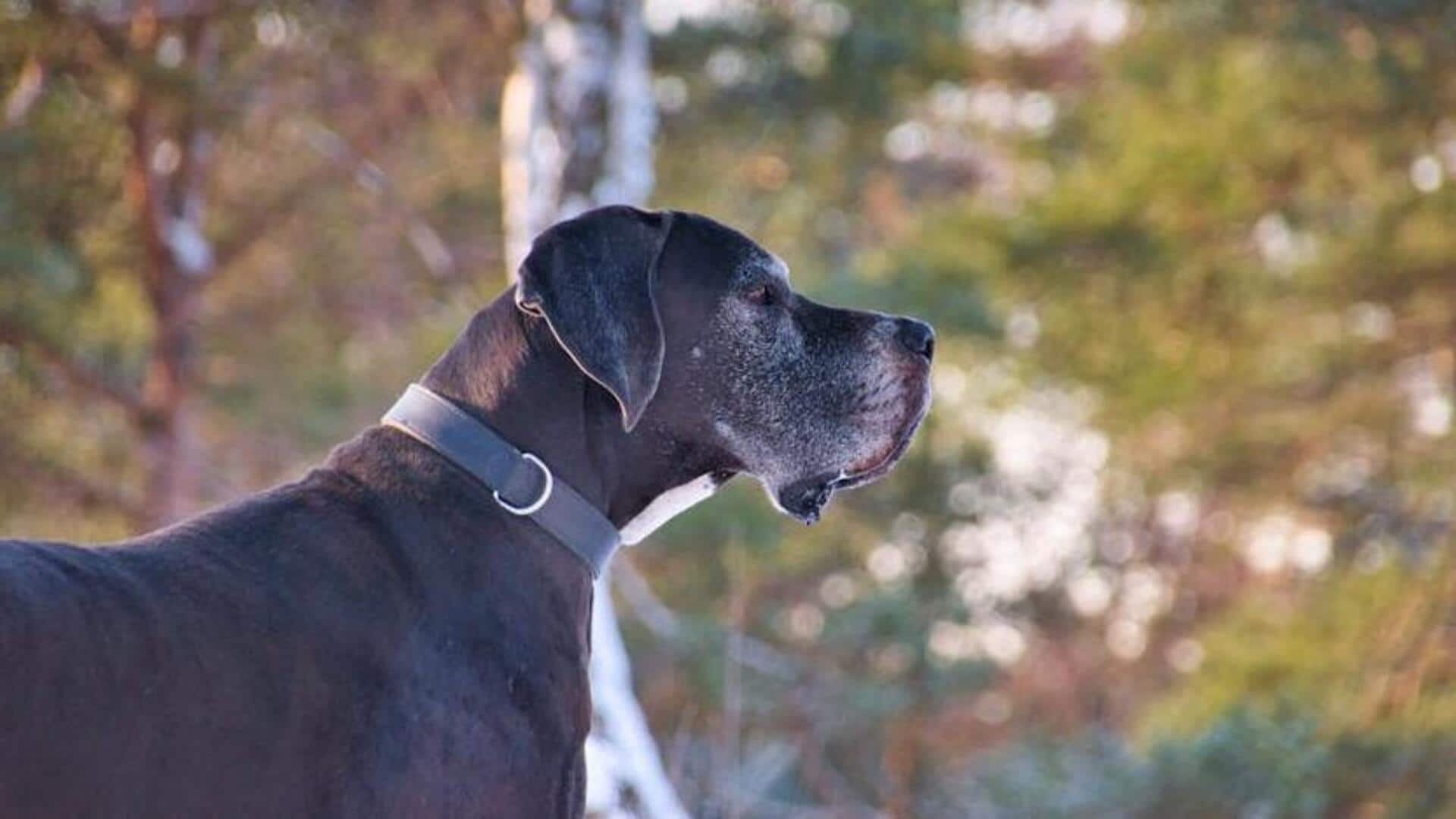
Essential care tips for your Great Dane
What's the story
The Great Dane, with its notable size and gentle nature, is a breed that naturally stands out. These towering dogs pair their impressive appearance with a warm companionship that endears them to many. Owners of this breed must consider their unique requirements to ensure a life filled with health and joy. Proper care is paramount for the well-being of these gentle giants.
Tip 1
Balanced nutrition is key
Great Danes need a diet that caters to their swift growth and substantial size. Providing high-quality, large breed-specific dog food is critical to avert issues related to their growth and to sustain their overall health. Implementing portion control and establishing consistent meal times are vital in preventing overeating and the risk of bloating, which can be life-threatening for these dogs.
Tip 2
Regular grooming routine
Great Danes, despite their short coat, require a consistent grooming schedule. A weekly brushing regimen is essential to manage shedding and promote healthy skin. Bathing should occur when necessary but sparingly to prevent skin dryness. Additionally, routine nail trimming and ear cleaning are crucial to avert any discomfort and potential infections, maintaining the overall well-being of these large canines.
Tip 3
Training for gentle behavior
Training your Great Dane is crucial due to their formidable strength and size. Begin obedience training early, focusing on positive reinforcement methods to encourage good behavior. It's also vital to socialize them from a young age to ensure they interact with other animals and people calmly, despite their size which can be intimidating. This approach helps in managing their physicality with gentle behavior.
Tip 4
Healthcare considerations
Great Danes are predisposed to certain health issues, notably hip dysplasia, various heart conditions, and bloat, also known as gastric torsion. To catch these problems early, it's crucial for owners to maintain regular veterinary check-ups. Additionally, understanding the symptoms of bloat is imperative, as this condition is an emergency that demands immediate veterinary intervention to prevent life-threatening complications.